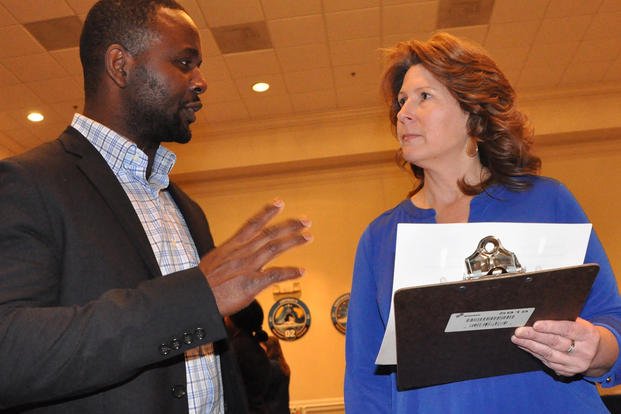The rules of etiquette in a job search deal with behavior. Certain behaviors are expected, and others may or may not be acceptable, depending on the circumstances. When we combine the expected behaviors with common sense and common courtesy, we end up with a useful interview checklist:
1. Confirm the appointment.
Do this 24 hours or one working day in advance. Make sure you know the date, the time and the location of the interview. Try to find out how long you should expect to be there. An hour? Half a day? The entire day? Also, make sure you have the appropriate phone numbers in case you have to call.
2. Anticipate the paperwork.
Determine what you need, gather it together, organize it and make sure you have the appropriate container; e.g., a briefcase, portfolio, binder or pocket notebook. Copies of your résumé, references list, performance evaluations and education records are among the documents that might be requested. Also, bring some writing materials in case you need to take notes.
3. Know the players.
If you know the name or names of the interviewers in advance, confirm the pronunciation and spelling. This comes in handy during and after the interview.
4. Verify your destination.
Make sure you know how to get there. If time and circumstances permit, take an advance trip. Scout the location, parking options, traffic patterns and walking distances. Waiting until the day of the interview to discover a construction delay could be costly. Never arrive late.
5. Clear your calendar.
If possible, keep your schedule free of any other commitments. The interview might run over, or you could be asked to stay longer. Explaining that you have someplace else to be could create an awkward situation.
6. Do not arrive late.
Showing up late, regardless of the reasons, not only casts doubt on your reliability, but also labels you as discourteous or rude. If unforeseen circumstances arise and you will be arriving late, do everything in your power to call ahead to explain.
7. Do not arrive too early.
Time your arrival so you are 15 minutes early. That is about when they start looking for you. Any earlier and you could create an uncomfortable situation. They might not know what to do with you while you are waiting.
8. Dress appropriately.
Arriving at the interview, only to discover that you are not properly attired, is embarrassing for both parties. Although traditional business attire is appropriate most of the time, circumstances may dictate otherwise. If this issue is unclear, seek guidance from your point of contact at the company. When in doubt, take the safe course. Being overdressed in your conservative interview suit is preferable to the alternative.
9. Turn off or silence your phone.
There is no excuse for an interruption of that sort during the interview.
10. Announce your arrival.
Walk up to the receptionist, smile, shake hands, introduce yourself, state that you have an appointment with Mr. or Ms. so-and-so at 9 a.m., offer your business card or résumé, and wait for instructions.
11. Be patient.
This is a double standard. Although you cannot be late, they are allowed to keep you waiting. Keep smiling. Make eye contact with the receptionist. Try not to fidget, sigh or look perturbed. After about 30 minutes, ask the receptionist for a glass of water or directions to the lavatory. The hint will be taken.
12. Be courteous and polite.
Everyone you meet in an interview deserves common courtesy and respect. Although the guard at the gate and the front-office receptionist are not part of your interview agenda, you should expect that their opinions of you will be solicited.
13. Anticipate the necessary follow-up activity.
Make sure you are aware of any post-interview expectations on the part of the interviewers. You might be asked for additional materials, a modified résumé, to complete an application form, or to provide references. Whatever the case, do it in a timely and accurate manner. Additionally, send follow-up letters or emails.
14. Communicate well.
Call when you say you will. Return calls promptly. Make your voicemail message short and to the point. If you use their voicemail, always include your phone number and the date and time you called. Communicating via email may or may not be appropriate. Find out in advance.
This guidance may seem like a simple combination of basic common sense, politeness and personal and professional courtesy, but it is very important. There is much about the interviewing process that is out of your control. It does not do you any good to worry about those issues. However, you do have control over the steps leading up to the interview. Putting in a little extra effort and exercising some caution will pay dividends.
© 2012; Tom Wolfe, author; all rights reserved; excerpts from "Out of Uniform: Your Guide to a Successful Military-to-Civilian Career Transition"; used with the permission of the author and publisher.
Want to Know More About the Military?
Be sure to get the latest news about the U.S. military, as well as critical info about how to join and all the benefits of service. Subscribe to Military.com and receive customized updates delivered straight to your inbox.











